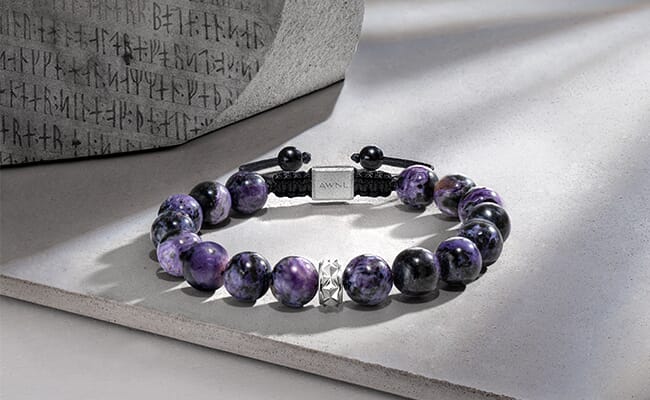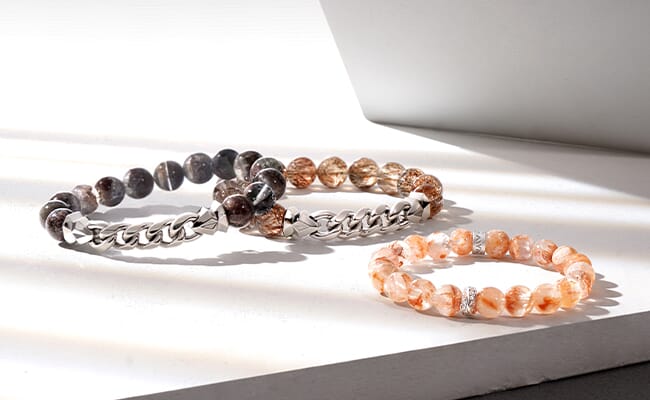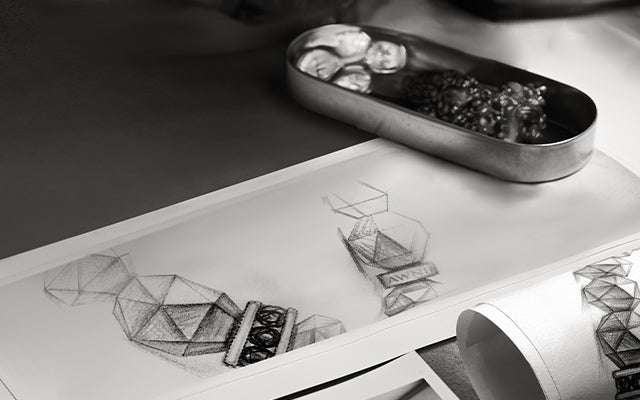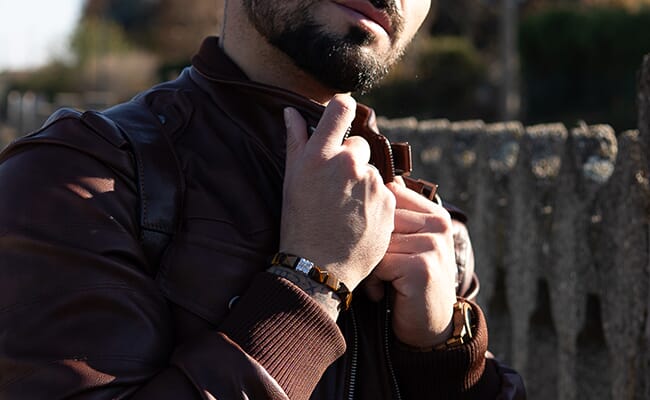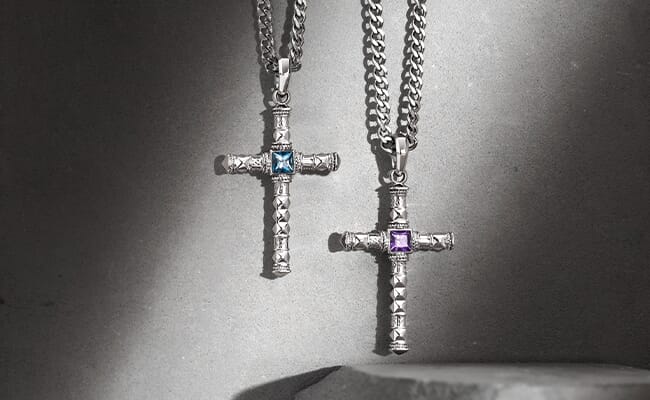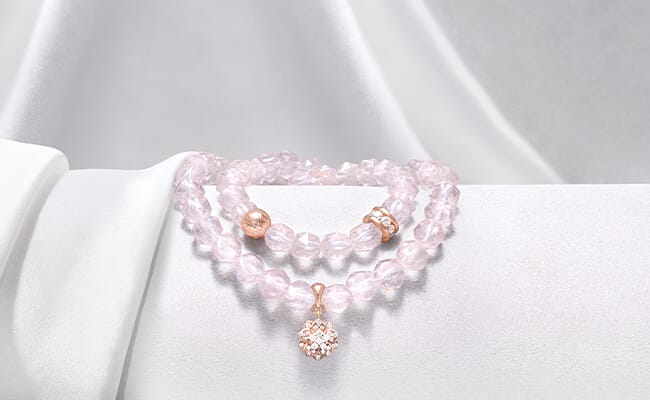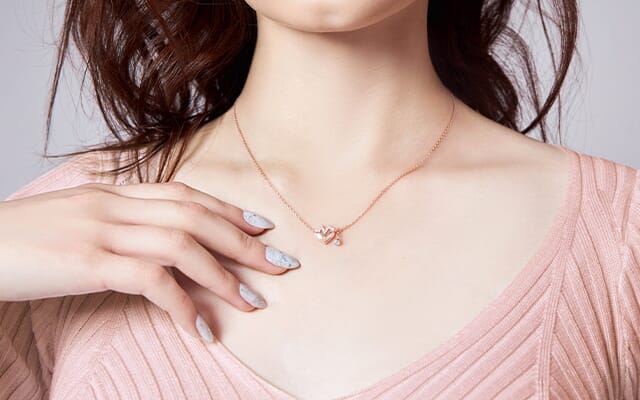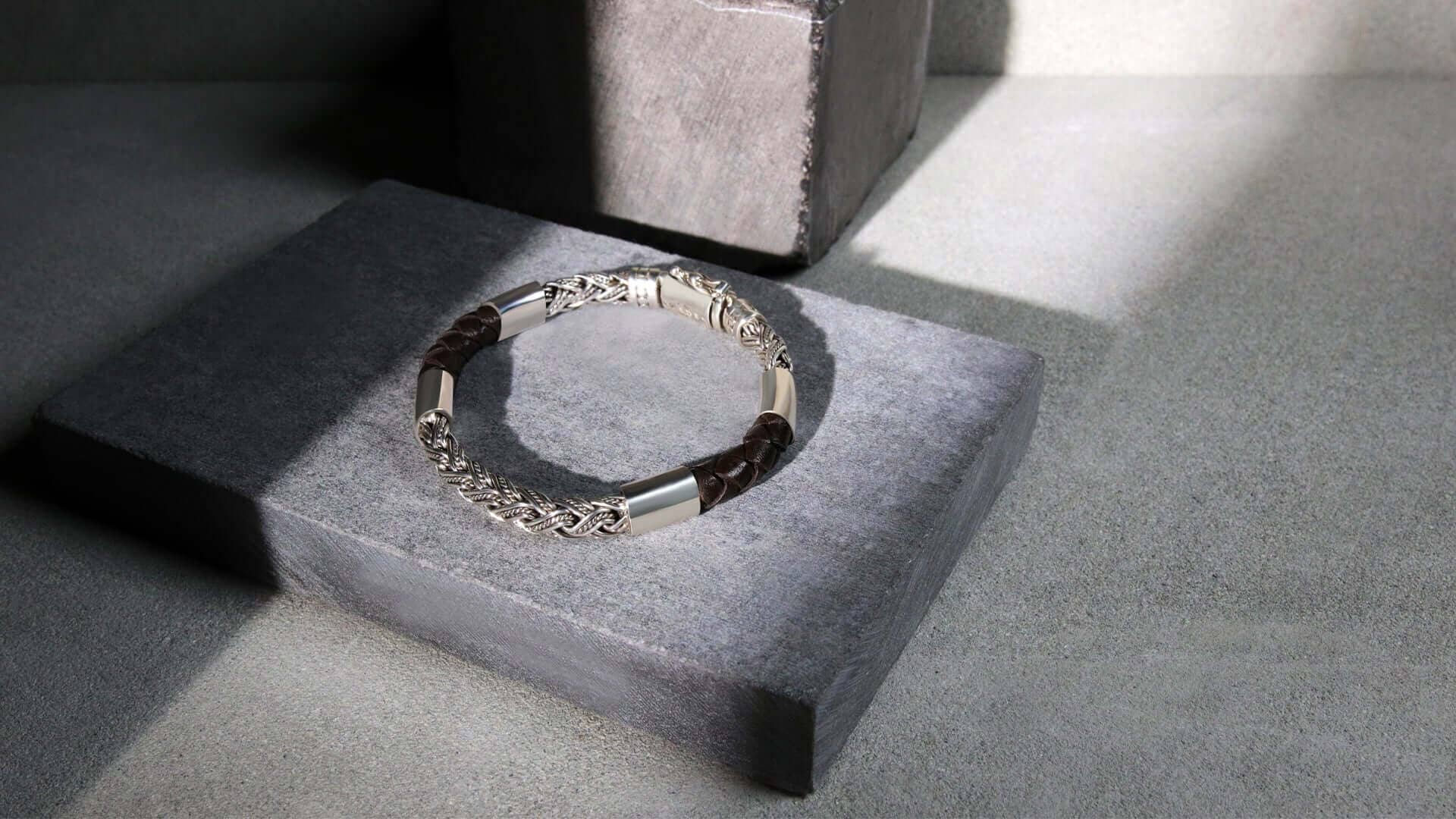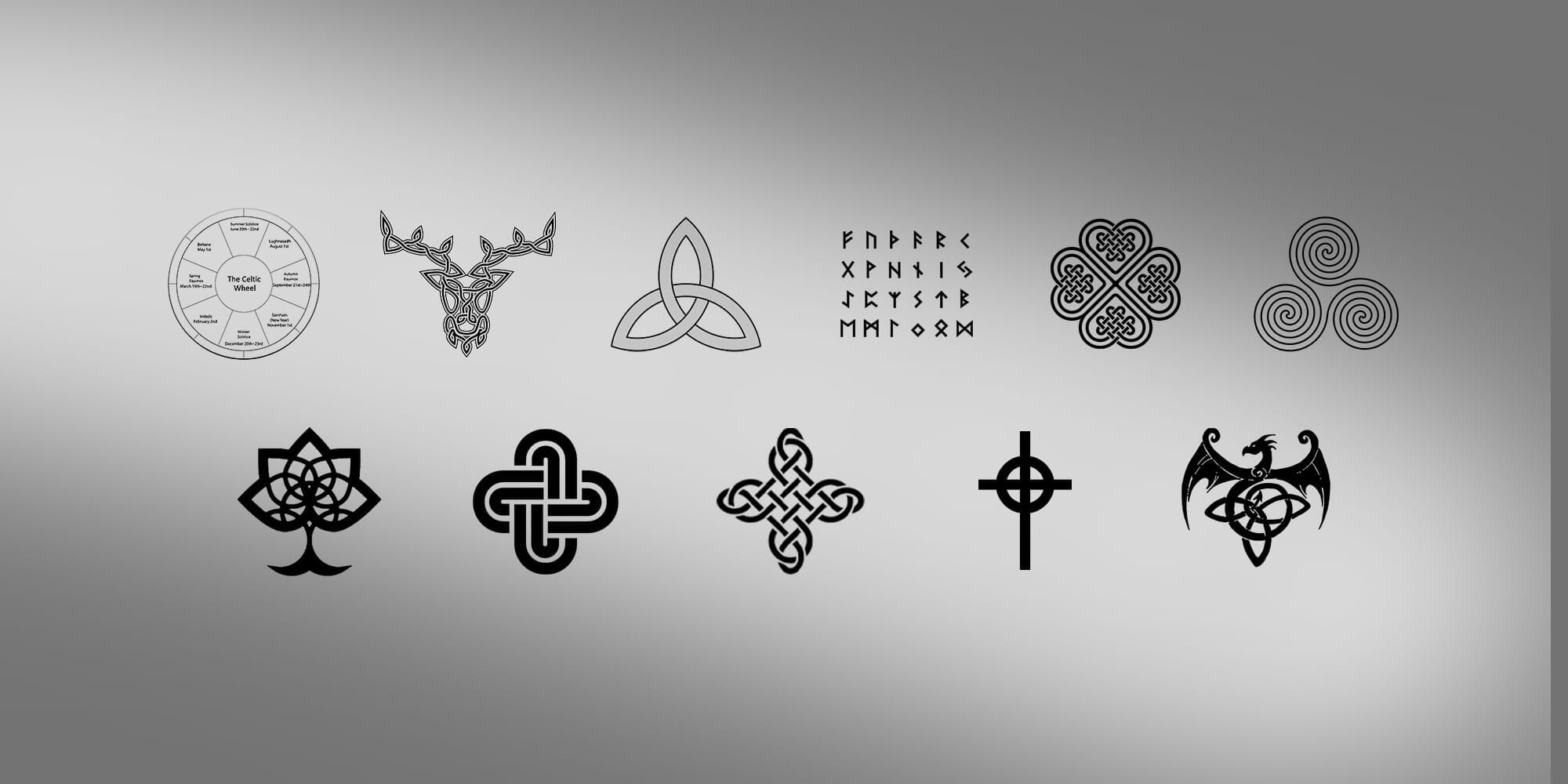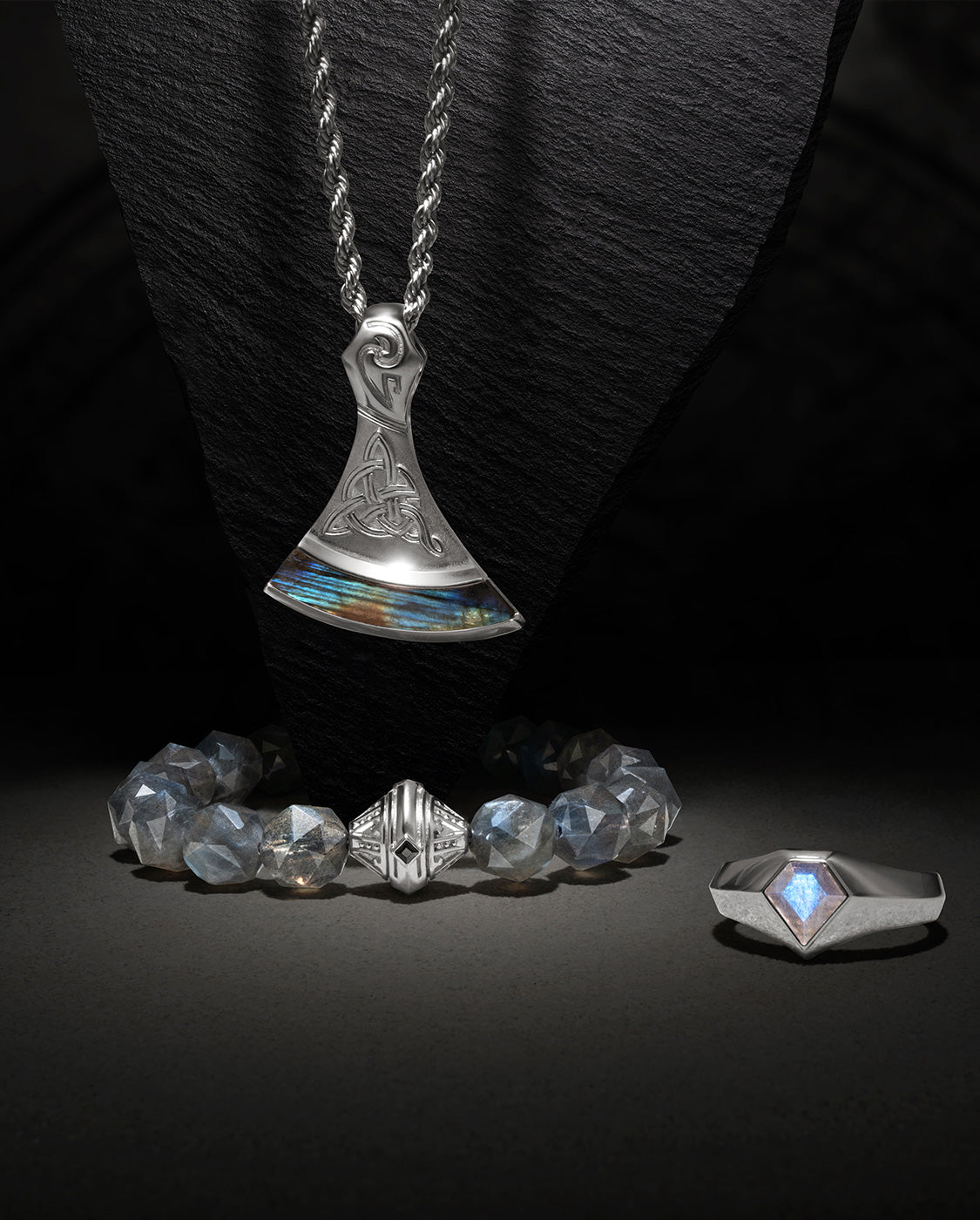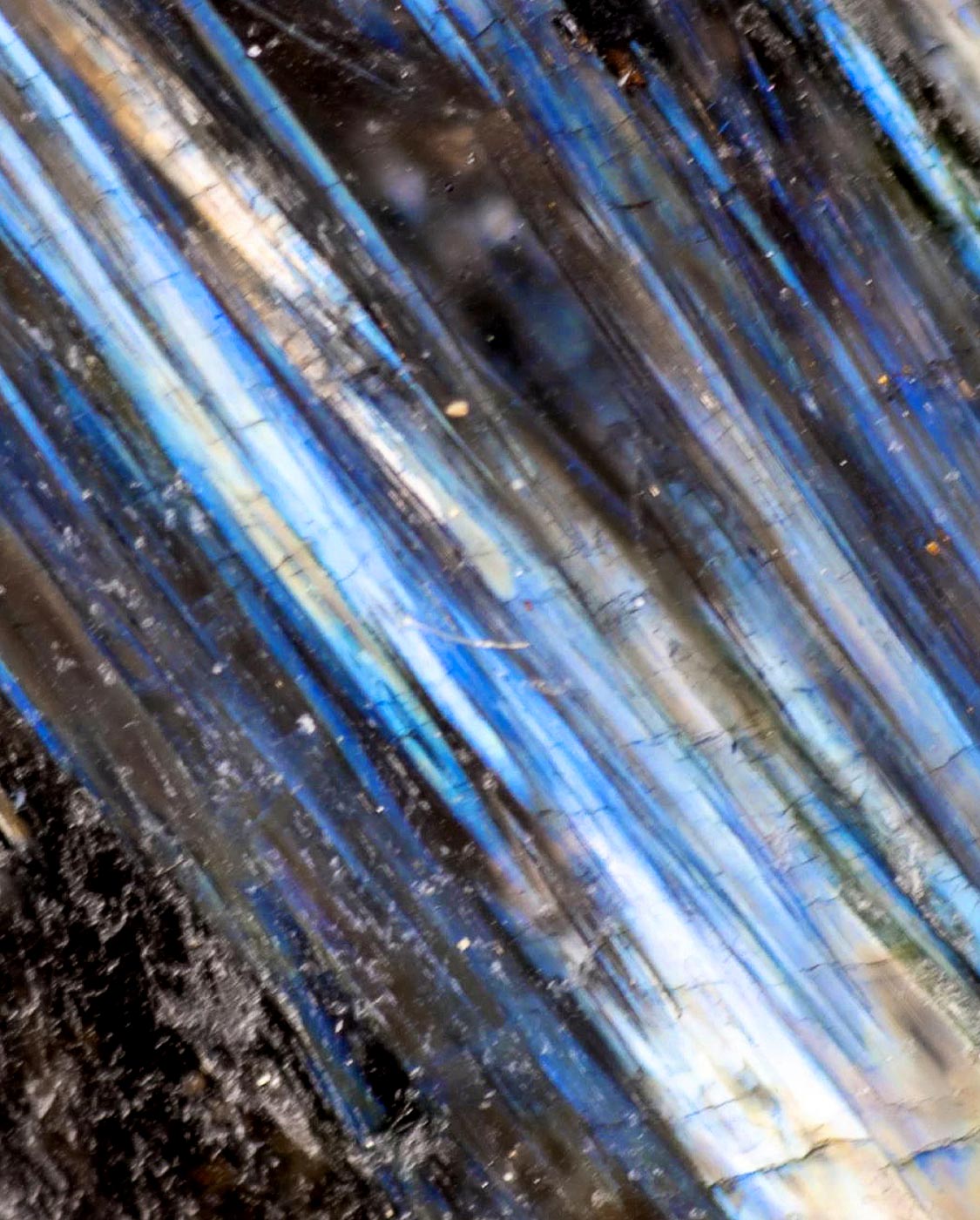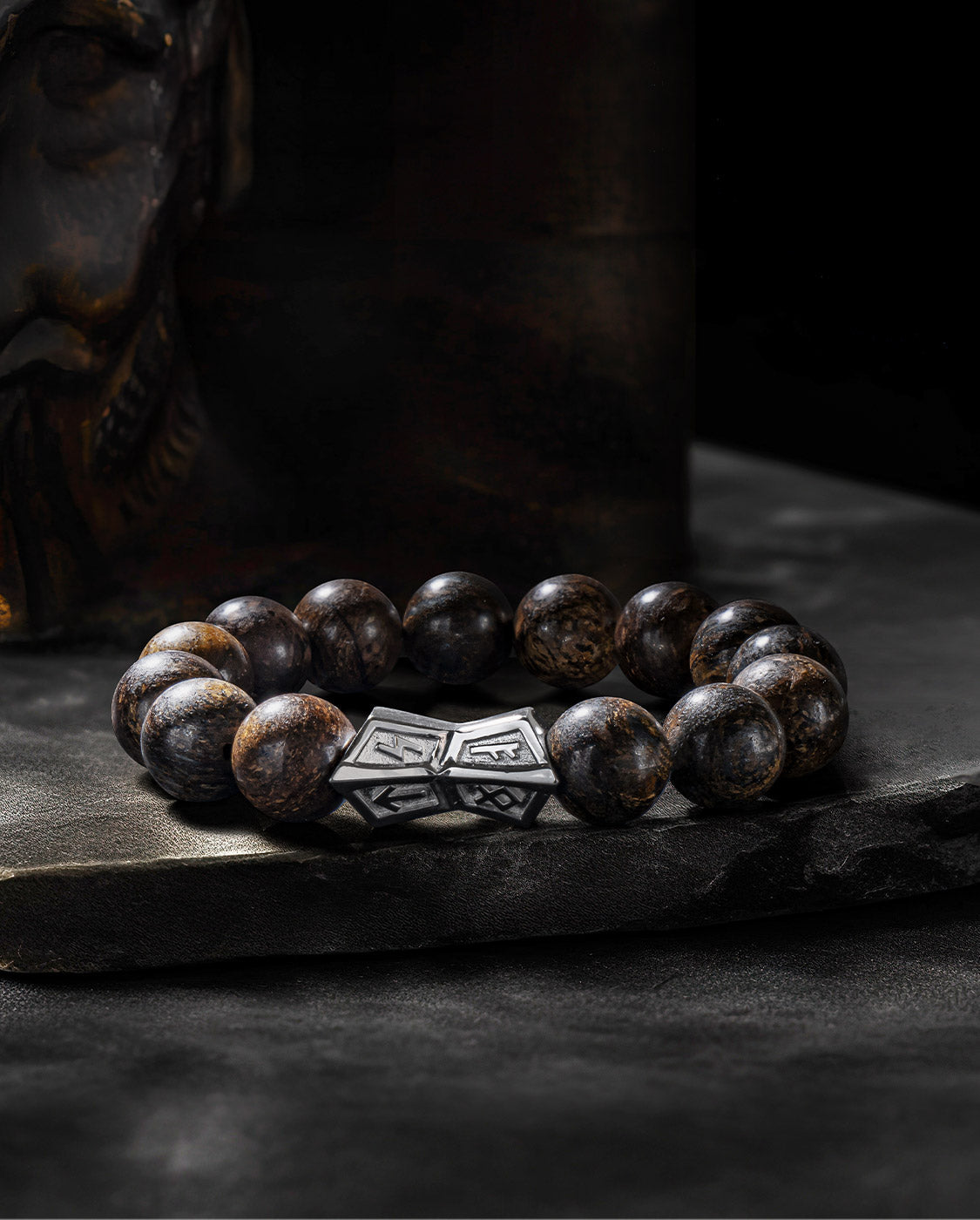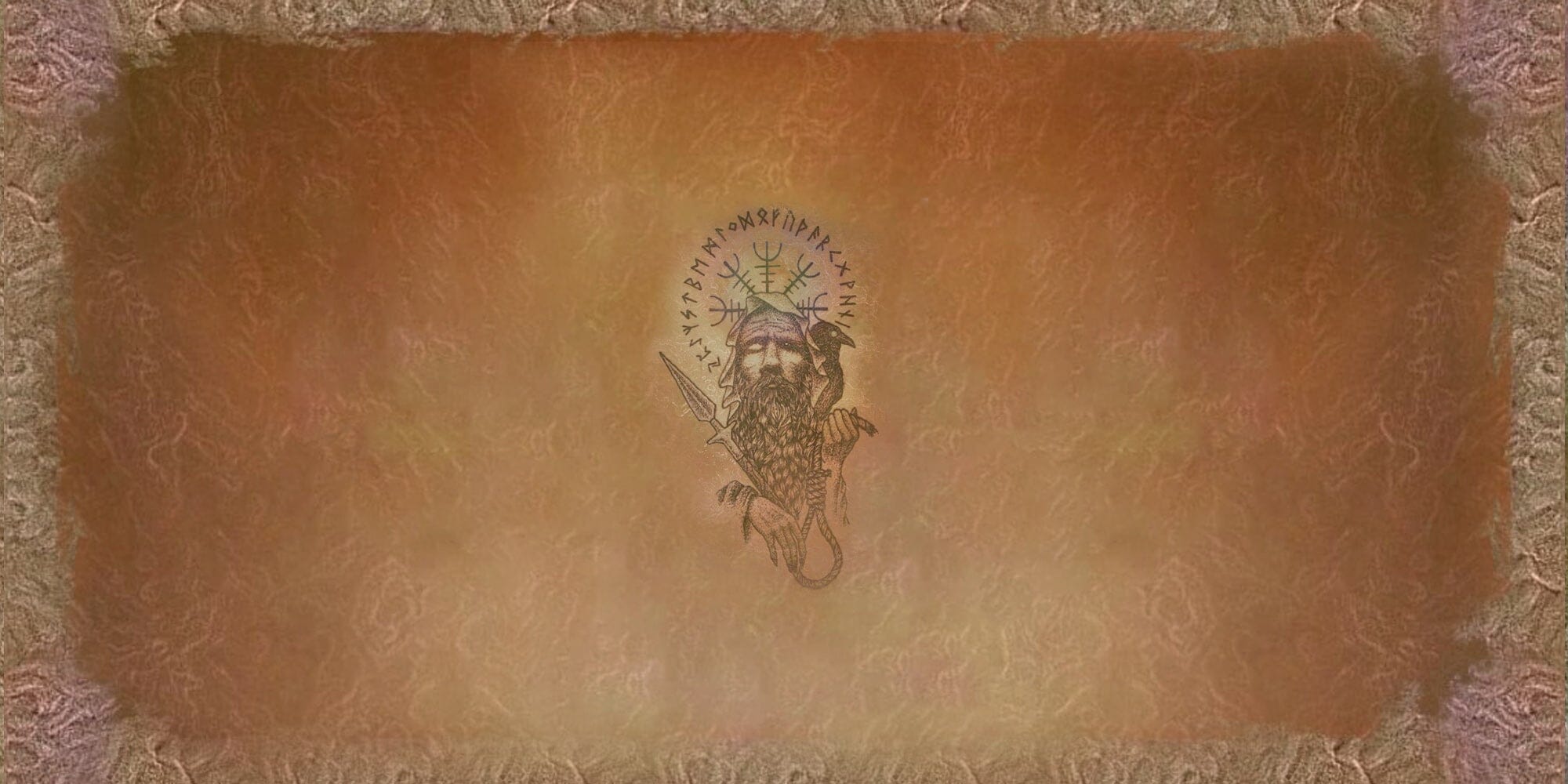
The Magic of Rune, the Protection of Ancient Norse Gods
Table of Contents
Rune: The Norse Protection Symbols
From God's Comprehension - Runes: Ancient Alphabets of Power.
"Runes" are part of an ancient Germanic alphabet that was primarily used in Scandinavia and the British Isles.
Origins of the Protection Rune Symbols
Fusark "Futhark" is the universal Germanic alphabet. The name Futhark is taken from the first 6 letters of Runes, and traditional Futhark has a total of 24 letters. A blank stone is also added during the divination, making a total of 25 stones.
The 24 Feysac letters are divided into three parts in groups of eight, called "Etes". The three Etes are from Nordic mythology symbolizing different Nordic gods. The Frey Et (the god of abundance, prosperity, love, and peace), Hag Et (god of stumbling, hardship), and Tyr Et ( god of war).
Rune Texts: Voices of the Cosmos
Every Rune text has a meaning. Starting with the meaning of "Rune" itself, each term is dependent on different speaking and occult concepts. They are also known as run-, runi, runa, in the root of several ancient dialects.
Runa: The Secret Whisper of the Ancients
Runa, which means "secret whisper" in Gothic. While rhin in Old English translates to "secret writing". In the Baltic region, run- means "speaking". In Lithuanian, runoti means “speaking” or “cutting with a knife (Probably an early way of carving letters into stone or wood)”.
Runes: Symbols of Divination and Power
Each Rune text represents a certain cosmological principle, an ideogram or pictogram of a force. Writing a rune is to invoke and channel the force it represents. In addition to being used as text, Runes can also be engraved on animal skins, wood chips, stones, crystals, metals, or gemstones representing the symbols for divination. [1]

Rune on vellum, documenting early Norse law
Odin's Discovery: The Ultimate Norse Runes for Protection
The ancient Norse believed that the scriptures of such graces were the words of the gods. In Norse mythology, Odin, the father of the gods, hung himself from a tree for nine days and nine nights at the cost of losing a right eye, in order to seek higher wisdom by thinking about the mysteries of the universe. The tree Odin hangs is the world tree at the center of the Germanic universe.
When he came down from the tree, he conceptualized the Rune. Although the rune was never invented, but discovered by Odin.
Odin's Sacrifice: The Birth of Runes
This story is handed down in the ancient Norse poem Hávamál ("Words of the Most High")[2]:
I know I'm hanging on a tree blown by the wind.
Nine o'clock all night,
Pierced by my spear
and dedicated to Odin,
I sacrificed myself for myself
Nobody knows
Which pole is its root on.
I didn't get any help,
Not even a sip of water from the horn.
Look down,
I saw Rune -
I grabbed them screaming-
Then I fell back from there.
Voices of Protection and Power
The ancient Nordics had a natural reverence for runes, and believed that many holy spirits and monsters could be summoned from these words. They believed these letters with unique symbolic meaning could predict the future and embody the cultural essence of ancient people and the collective subconscious of human beings.
Each rune represents a voice that protects the human soul. As long as it is carved on any material, it can be used as a personal lucky charm or worn as a jewellery piece to gain infinite power.

The picture shows Odin hanging from the World Tree
Rune’s Magical Legend and Protection Power
Runes: From Stone to Script
The simple rectilinear form of Rune script makes them very easy to be inscribed on stone and bone. But Runic languages are difficult to convey with record texts and use an excessive vocabulary capacity. This inefficiency is one of the reasons why they were eventually replaced by Latin.
Although Latin script would be more efficient and practical in writing, Rune conveys more than simple sounds as well as powerful magical symbols [3].
Beyond Just Protection
In Icelandic heroic legend, Egill Skallagrímsson was a Viking Age poet, warrior and farmer, and a master of Nene, deploying Nene for magical incantations.

Egill Skallagrímsson
Runes: The Magical Incantations of Egill
Legend says that on one occasion he went to the home of a young woman who was bedridden because of a serious illness. When Egill came to the woman, he found that beside her was a whalebone inscribed with Nirvana, which caused her health to deteriorate. Egill carved new runes that ultimately helped the lady begin the road to recovery.
Runes in Love and Seduction
According to the medieval ballad "The Wedding of the Knight Stig," Nurwen can also be used to seduce women. Knight Stig fell in love with a young lady named Kirsten and tried to win her over with the help of a staff engraved with Ruin, unfortunately, the staff accidentally rolled under Princess Regiz's skirt, and the magic worked on her instead. The princess immediately fell in love with Stig, who eventually had to marry her.
Runes: Bridging the Human and the Divine
Throughout legends and history, runes have had inherent magic power. Its existence not only promoted communication between people but also promoted communication between human beings and the gods. Facilitating our conversation with the mysterious forces of the world.
Modern Aesthetics of Norse Runes for Protection
The earliest unequivocal Rune texts known to experts are found on the Vimose comb in Denmark and the Ovre Stabu iron spearhead in southern Norway. Both dated to about 160 AD. The earliest known engraving of the entire Futhark (the alphabet) is on Kelverstone in Gotland, Sweden, and dates back to about 400 AD.
With the introduction of Christianity to Northern Europe, the Rune alphabet was gradually replaced by the Latin alphabet. The main reason for this is that in the Dark Ages, people were forced to transcribe the Bible in large numbers. Thus, the runic language lost its staying power. While, runes have edges and corners, which had an advantage in "engraving", when writing took off, Latin was more suitable.

Earliest known Rune writing (around 150 AD) is engraved on a comb
Around 700 AD, runes disappeared in Central Europe; around 1400 AD, Ruenwen disappeared in Scandinavia and other regions. Although on some specific occasions, these scripts continued to be used. But the rune script had become an important and distinctive part of Nordic culture and heritage.
Until modern times, many traces of Rune letters can still be seen in some buildings, personal home decoration, and jewelry design in Nordic countries and have been integrated into the blood of Nordic culture. Replaced, but not forgotten.
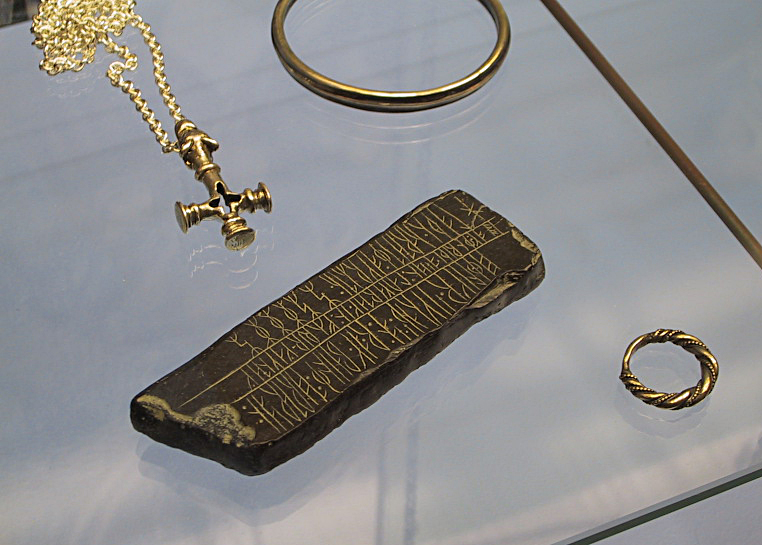
Because runes are so beautiful, people still engrave them on jewelry, weapons, and many sacred objects, showing a mysterious meaning that cannot be expressed in Latin. [3]
Runes in Jewelry: Wearing the Viking Rune of Protection
Leading the way in talisman jewelry, we're inspired by the mystic Emanuel Swedenborg. Delving deep into Nordic culture, we've unlocked the magic of runes, seamlessly infusing their ancient voice into modern designs. Wear the mystery; embrace the power.

AWNL Rune-Engraved Bracelets Collection
Shown above, is the Nordic light luxury bracelet from us. The center is engraved with the text of grace, representing protection, success, and luck.

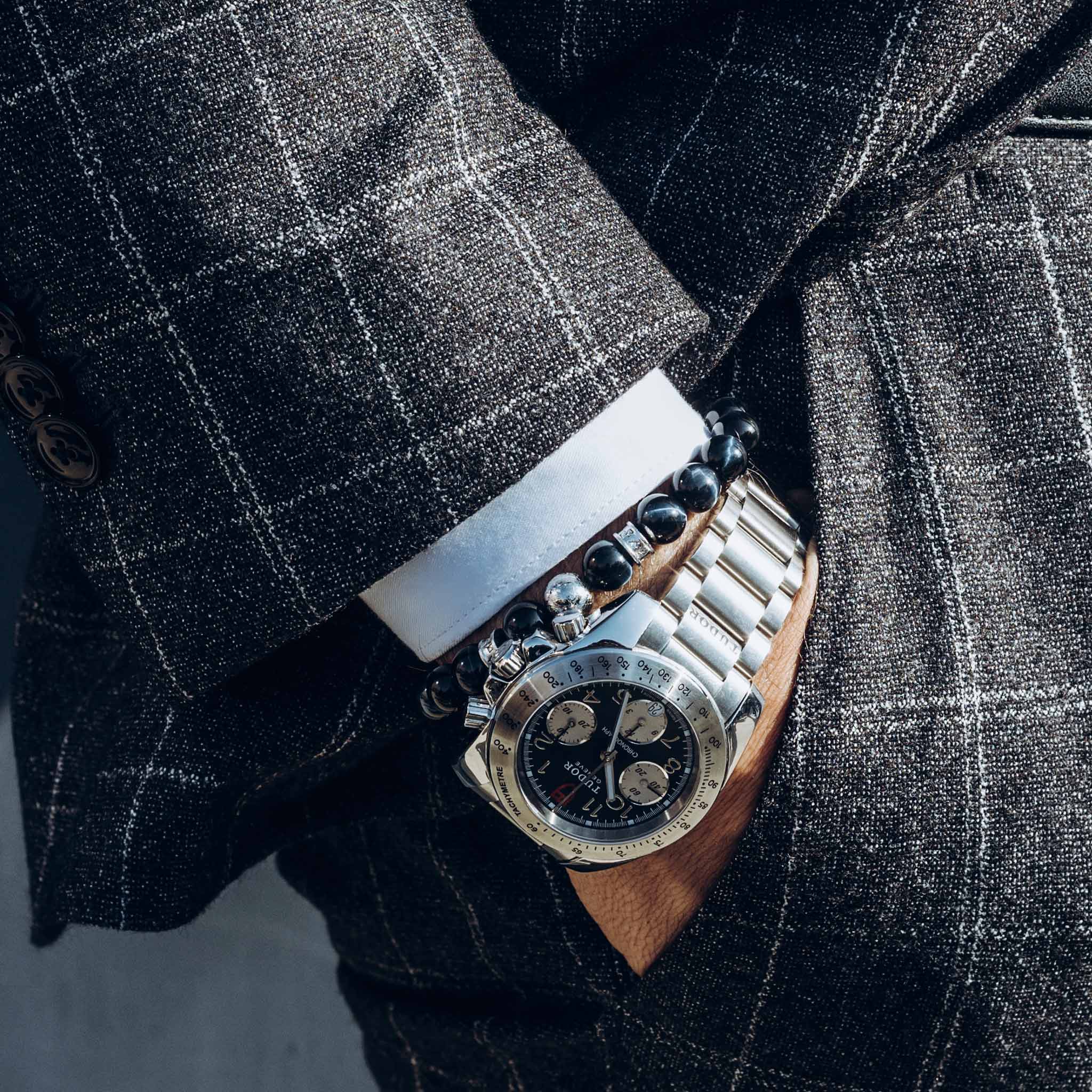
Runes in Modern Media: A Testament to Their Legacy
Even in fantasy literature, video games, and various other forms of media, runes are also seen as having magical properties. Many Western film and television works with the theme of magic have mentioned runes, such as Sirius' tattoo in the "Harry Potter" series or the symbol Gandalf painted on the door in "The Hobbit".
The Best Blessings from Ancient Gods to Modern People
Through the act of human sacrifice, Odin proved himself worthy of the knowledge and power of Grace. After that, he was able to use runes to confer powers, blessings, or curses, and even to bring back the dead. According to legend, runes brought the power of the gods to mankind.
The Spiritual Power of Norse Protection Runes
Undoubtedly, runes are an important part of Norse mythology and spiritual practice and is the best blessing from the ancient gods to modern people. These runes have an intrinsic meaning that can promote interaction with the invisible forces of the mystical world.
Every symbol in the Runic language has very potent meanings. The Nordic people believe that runes have spirituality with the earth and power and vitality to stimulate potential energy.
References
[1] Stephen E. Flowers. Runes and Magic: Elements of Magical Formulations in the Ancient Rune Tradition.
[2] Jackson Crawford. Poetic Edda Hackett Publishing Company. 2015.
[3] Simek Rudolph. Dictionary of Northern Mythology. 1993.




